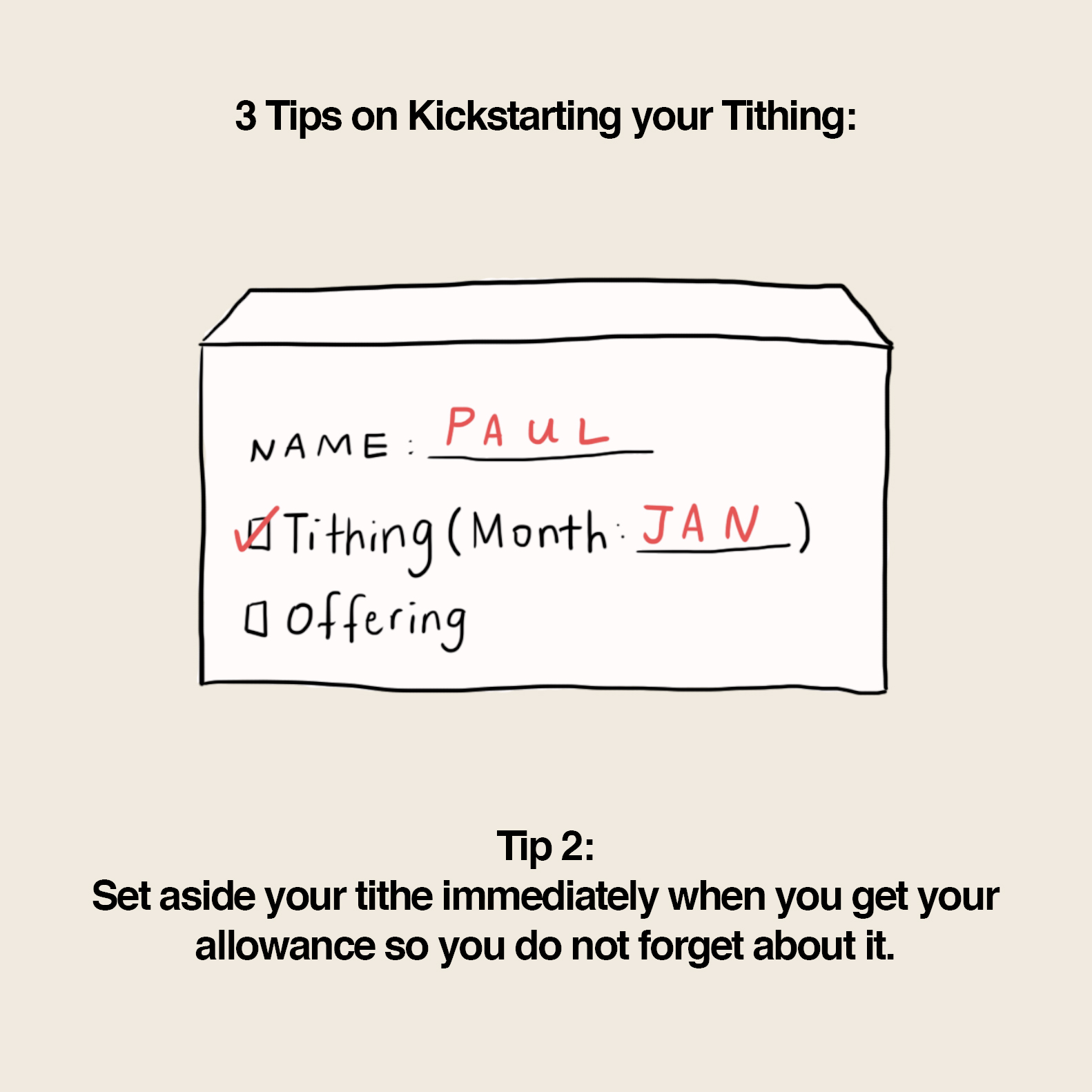Tithe, said my cell leader. My reaction: Why? I’m just a student – a poor one, to boot.
To my mind, tithing only starts when I first draw an income. To give as a student was not only something I had never thought about, but also an incomprehensible challenge. I barely have enough to survive on after deducting what I spend on transport and meals. Must I really sacrifice that 10%, which I could use to cafe-hop with my friends?
Immediately, a slew of arguments came to mind to keep my money to myself.
Argument 1: Why must I even tithe?
Must you tithe? No.
The real problem is with the question. Instead of asking “Must I?”, try: “Why shouldn’t I?”
As Christians living under the New Covenant, abiding by the letter of the law is no longer the primary way we relate to God. We are now living under grace, the free and unmerited favour of God. What this means is that we are already abundantly blessed, with much more than we could ever ask for.
I believe that if we truly understand this abundance, this blessedness, giving something back to God won’t seem that much of a sacrifice. Instead it’s a reflection of our gratitude, where we cannot help but to be cheerful in our giving.
So, you may ask, can I offer my thanksgiving in other non-monetary ways? Yes, you may. That’s called service or ministry.
But you still have to tithe. Jesus the son of man knew the hold that money can have over us. He preached about money more often than he did about hell or sex. Tithing is also a process of discipline for us; it keeps us in check, a monthly reminder that we must never love money more than we love our God.
Argument 2: I don’t have enough money.
One common worry about tithing, especially for us students, is if we’ll have enough left to spend after giving to God.
But exactly how much is “enough”?
Think back to the early days of the Mosaic law. The Israelites’ income wasn’t counted in dollars and cents. They were an agrarian society, and so every tenth animal to pass under the rod or every first tenth of the harvest were considered their tithe. It didn’t matter if the offering was perfect or blemished. It all belonged to God.
This meant that even if all the perfect crops went to God with the tithe, and the Israelites were only left with blemished produce, whatever was left was still enough for them to survive. God doesn’t shortchange us.

Thus what we give cannot be defined as “good” or “bad”. Whatever we give is gratitude; whatever is left is enough. God did not leave us with 90% to live on after tithing – He gave us more than enough so that even after tithing, we still have a full 100%.
Argument 3: I will tithe … but only when I start working.
Back when I still received an allowance from my parents, I felt guilty tithing because they are not believers. It felt like I was betraying them and misusing their money, so I told God I would tithe when I started earning my own keep. But I soon realised the problem with that thought process.
When my parents gave me my allowance, they also handed me the responsibility of managing my own expenditure. I decide how I allocate my allowance. I’m in charge of what I want to spend on. I’m not responsible for how they want to spend theirs. I’m not “betraying” anyone. I’m simply taking ownership of what they have given me.
Similarly, whatever our Heavenly Father gives us, He also entrusts to us. There’s no reason to suggest this principle only kicks in with money we’ve earned ourselves. Our role as a steward does not start only when our career does. We are held accountable, adult or student, old or young. Our everyday decisions, actions and attitudes matter to God. So how we use our allowance is also a test of stewardship – our faithfulness to what He has given to us.
Others may find tithing as a student is inconsequential since they don’t get much in allowance. “$50 only, what can it do? I’ll tithe when I start earn big bucks.”

However, faithfulness starts small (Luke 16:10). If we cannot even give up $50, what makes us think that we’ll be able to offer up $500 or $5,000 when the time comes? Besides, tithing has never been about the size of the amount that we give – remember the widow who could only give two copper coins in Luke 21:2? It is about the character that is produced in us over time, through the small steps of obedience to God taken year in and year out. The amount we have to offer may be insignificant, but not the attitude being honed through our discipline and actions.
Argument n: There will always be arguments against tithing.
The commitment to tithe is not easy. Ideally, we give joyfully to God, but more often than not, we feel the tug in our heart as we offer up our five loaves and two fish. Don’t let the deterrent factors stop us from doing it; through such struggles and perseverance are our faith and character moulded.

CS Lewis once said: “If the thing we like doing is, in fact, the thing God wants us to do, yet that is not our reason for doing it, it remains a mere happy coincidence. We cannot therefore know that we are acting at all, or primarily, for God’s sake, unless the material of the action is contrary to our inclinations, or (in other words) painful.”
Tithing may be painful – but that’s what makes the sacrifice worth it.









